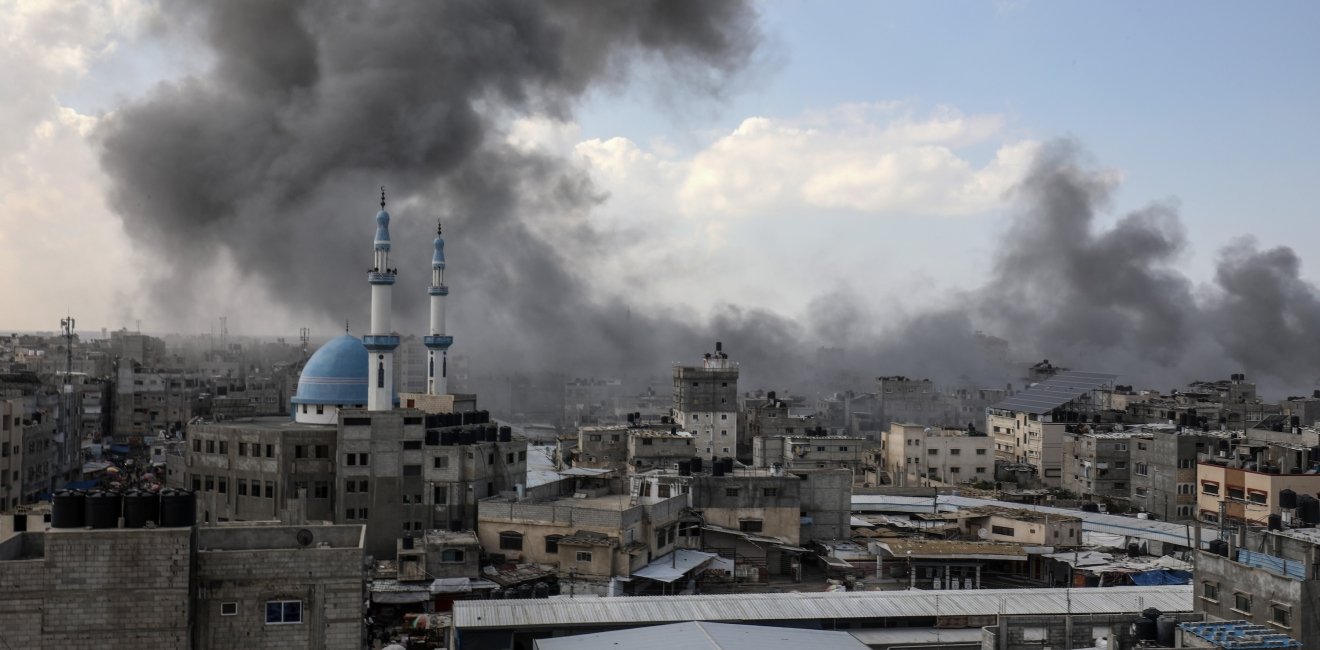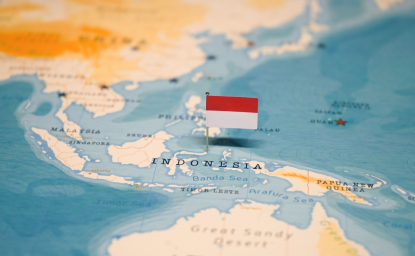In 2020, the election of Joe Biden as president sparked a sense of relief among many leaders and citizens in the Arab world. In a 2020 survey conducted by Arab Barometer across multiple Arab countries, citizens were asked about their preference for the US presidential candidates. Joe Biden's popularity far exceeded that of his predecessor, Donald Trump. There was widespread hope that this change in leadership would bring about a more favorable approach to foreign policies, particularly concerning the MENA region.
However, perceptions of the U.S. administration have sharply soured among many in the Arab world when Biden announced full support for Israel to pursue military action after the October 7 Hamas attacks on Israel. Attitudes on the U.S. and the future of U.S.-Arab relations in the Arab street reflect stronger sentiments than those held by their respective governments.
From generation to generation
The Palestinian cause stands as a cornerstone of high significance to the Arab World. Apart from formal schooling, parents and other community members passionately teach the younger generations about the historical narrative of Israel’s occupation and the Palestinian plight, embedding the weight of Palestinian liberation from occupation and Israeli aggression towards Palestinians in their psyche.
Additionally, even before the prevalence of smartphones, Arab news outlets, especially Al Jazeera, routinely broadcasted vivid footage of almost daily Israeli military and right-wing settler offenses toward Palestinians to millions across the Arab-speaking region. This frequent exposure plays a crucial role in reinforcing the imagery of the Palestinian struggle for the people of the region across generations. According to the 2023 ASDA’A BCW Arab Youth Survey, 86% view Israel as a ‘strong enemy or somewhat of an enemy.’
Ahmad, a 31-year-old digital artist from Qatar, discussed watching human rights violations committed against the Palestinians as far back as he can remember. He added, “I have always seen footage of Israel torturing, shooting, and bombing Palestinians.” Therefore, despite dismay over the targeting of civilians, when the October 7 attacks happened, countless people in the Arab world were not surprised.
Amna, a 26-year-old Kuwaiti woman, was lying in bed when her sister barged into her room to break the news about Hamas crossing into Israeli territory. “My body and mind were in shock, yet I was not surprised at the same time.” Since then, Palestine-Israel has become a daily topic of discussion with friends and family. “While no civilian should be harmed, we all agree that the October 7 attacks were a result of decades of inhumane practices by Israel.”
Since the onset of Israel’s Gaza offensive, many Arab leaders have clearly expressed their discontent and concern over Israel’s carpet-bombing strategy. However, they lack substantial leverage capable of pressuring Israel to rethink its military actions. For example, the historic 1973 Saudi-led oil embargo, a political tactic to the U.S.’s complete support for Israel during the October War of 1973, led to worldwide economic instability. No Arab leader has imposed an embargo at this scale since.
Many Arabs criticized the U.S. administration for its failure to address Israel's ongoing violations of international law and its apparent disregard for the loss of innocent lives in Gaza, drawing comparisons to its response regarding Ukraine.
The lack of effective political measures, coupled with the reminder of the perceived subservience of the Arab stance to Western powers over the situation in Gaza and the Palestinian plight overall, has exacerbated grievances and fostered feelings of despair among the people of the region. Furthermore, many Arabs criticized the U.S. administration for its failure to address Israel's ongoing violations of international law and its apparent disregard for the loss of innocent lives in Gaza, drawing comparisons to its response regarding Ukraine. To date, more than 15,000 Palestinians have been killed and according to UNICEF, at least 40% of those killed in Gaza are children.
Future generations
Omar, a 45-year-old Tunisian, believed that Joe Biden would be a better leader than some of his predecessors. Now, however, he described feeling appalled at “Biden’s justifications to escalate violence, which enables him to provide more financial and military support.” He also added, “Biden is worse than George Bush when he invaded Iraq, and I am confident that everyone in the Arab and Muslim world hates him. Are there sensible people in this administration?”
Despite Omar and numerous others’ despair over the situation in Gaza and the lack of political leverage by Arab leaders, they are actively engaging in a potent boycott movement targeting brands and companies that support and deal directly with Israel or that have operations in illegal Israeli settlements. This includes major corporations such as Starbucks, Puma, HP, and McDonald’s, which provided free meals to Israeli soldiers.
In response to the backlash and rise in boycotts, @McDonaldsKSA shared a statement On X in Arabic by McDonald’s Corporation, explicitly stating they are “not funding or supporting any governments involved in this conflict.”
Alya and Hamid, a married couple in their late fifties from Saudi Arabia, are part of group chats on WhatsApp that have become predominantly focused on Gaza since October 7. They exchange information about the companies that others should boycott. According to Hamid, “boycotting is a very effective weapon in pressuring politicians to reconsider their policies.”
While cracks have unsurprisingly surfaced in Arab American diplomatic channels, restoring the trust of Arab millennials and Gen-Z could be the most difficult task for the current and future U.S. administrations.
While cracks have unsurprisingly surfaced in Arab American diplomatic channels, restoring the trust of Arab millennials and Gen-Z could be the most difficult task for the current and future U.S. administrations. “We will not forget,” said Maryam, a student at Georgetown University in Qatar studying international politics. “We will remain sensitive to war crimes committed by Imperialist America in our region.” She emphasized that President Biden’s position motivates her to participate in future politics, where she aims to foster alliances with countries sharing similar values, including those in East Asia, while concurrently diminishing the United States’ influence in the region.
As disappointments deepen and sentiments intensify, the US administration will not only face the task of reshaping and reforming its policies in the region, but also to restore public faith in US-Arab relations, particularly among the future leaders of the Arab world, the Arab youth.
The views expressed in these articles are those of the author and do not reflect an official position of the Wilson Center.






